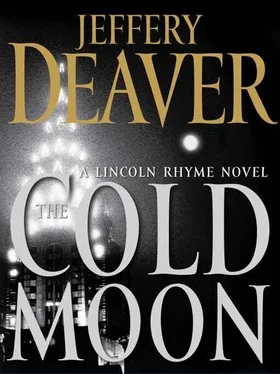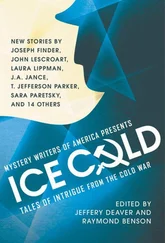As an interrogator, Kathryn Dance knew a great deal about the subject of anger; she saw it in the suspects as well as the victims she interviewed following crimes. She believed that Wes's recent interest in martial arts came from the occasional anger that settled like a cloud over him after his father's death. Competition was fine but she didn't think it would be healthy for him to engage in a fighting sport, not at this point in his life. Sanctioned fury can be a very dangerous thing, especially with youngsters.
She talked to him about the decision for some time.
Working on the Watchmaker case with Rhyme and Sachs had made Kathryn Dance very aware of time. She realized how much she used it in her work-and with her children. The passage of time, for instance, diffuses anger quickly (outbursts can rarely be sustained longer than three minutes) and weakens resistance to opposing positions-better than strident argument in most cases. Dance didn't now say no to karate but got him to agree to try a few tennis lessons. (She'd once overheard him say to a friend, "Yeah, it sucks when your mom's a cop." Dance had laughed hard to herself at that.)
Then his mood changed abruptly and he was talking happily about a movie he'd seen on HBO. Then his phone was beeping with a text message from a friend. He had to go, bye, Mom, love you, see you soon.
Click.
The millisecond of spontaneous "love you" made the whole negotiation worth it.
She hung up and glanced at Rhyme. "Kids?"
"Me? No. I don't know that they'd be my strong suit."
"They're nobody's strong suit until you have them."
He was looking at her ubiquitous iPod earphones, which dangled around her neck like a stethoscope on a doctor. "You like music, I gather… How's that for a clever deduction?"
Dance said, "It's my hobby."
"Really? You play?"
"I sing some. I used to be a folkie. But now, if I take time off, I throw the kids and the dogs into the back of a camper and go track down songs."
Rhyme frowned. "I've heard of that. It's called-"
"Song catching is the popular phrase."
"Sure. That's it."
This was a passion for Kathryn Dance. She was part of a long tradition of folklorists, people who would travel to out-of-the-way places to field-record traditional music. Alan Lomax was perhaps the most famous of these, hiking throughout the U.S. and Europe to capture old-time songs. Dance went to the East Coast from time to time but those tunes had been well documented, so most of her recent trips were to inner cities, Nova Scotia, Western Canada, the bayou and places with large Latino populations, like Southern and Central California. She'd record and catalog the songs.
She told this to Rhyme and explained too about a website she and a friend maintained with information on the musicians, the songs and the music itself. They helped the musicians copyright their original songs and distributed to them any fees listeners paid for downloads of the music. Several musicians had been contacted by record companies, which had bought their music for sound tracks of independent films.
Kathryn Dance didn't tell Rhyme, though, that there was more to her relationship with music.
Dance often found herself overloaded. To do her job well, she needed to hard-wire herself to the witnesses and criminals she interviewed. Sitting three feet from a psychotic killer, jousting with him for hours or days or weeks, was an exhilarating process, but exhausting and debilitating too. Dance was so empathic and so closely connected to her subjects that she felt their emotions long after the sessions ended. She heard their voices in her mind, endlessly looping through her thoughts.
SÃ, sÃ, okay, sÃ, I kill her. I cut her throat… Well, her son too, that boy. He there. He see me. I have to kill him, I mean, who wouldn't? But she deserve it, the way she look at me. It no my fault. Can I have that cigarette you talking about?
The music was a miracle cure. If Kathryn Dance was listening to Sonny Terry and Brownie McGhee or U2 or Dylan or David Byrne, she wasn't replaying the memory of an indignant Carlos Allende complaining that the victim's engagement ring cut his palm while he was slitting her throat.
It hurt, what I'm saying. Bad. That bitch…
Lincoln Rhyme asked, "You ever perform professionally?"
She had, some. But those years, in Boston and then Berkeley and North Beach in San Francisco, had left her empty. Performance seems personal but she'd found that it's really about you and the music, not you and the listener. Kathryn Dance was much more curious about what other people had to say-and to sing-about themselves, about life and love. She realized that with music, as with her job, she preferred the role of professional audience.
She told Rhyme, "Tried it. But in the end I just thought it was better to keep music as a friend."
"So you became a cop instead. About a hundred-and-eighty-degree change."
"Go figure."
"How'd that happen?"
Dance debated. Normally reluctant to talk about herself (listen first, talk last), she nonetheless felt a connection to Rhyme. They were rivals, in a way-forensics versus kinesics-yet ones who shared a common purpose. Also, his drive and his stubbornness reminded her of herself. His clear love of the hunt, as well.
So she said, "Jonny Ray Hanson…Jonny without an h. "
"A perp?"
She nodded and told him the story. Six years ago Dance had been hired by prosecutors as a consultant to help pick jurors in the case of the State of California v. Hanson.
A thirty-five-year-old insurance agent, Hanson lived in Contra Costa County, north of Oakland, a half hour from the home of his ex-wife, who had a restraining order against him. One night someone had tried to break into her house. The woman wasn't home and some county sheriff's deputies, who regularly patrolled past her house, spotted and chased him, though the perp got away.
"Doesn't seem all that serious…but there was more to it. The sheriff's department was concerned because Hanson kept up the threats and had assaulted her twice. So they picked him up and talked to him for a while. He denied it and they let him go. But finally they thought they could make a case and arrested him."
Because of the prior offenses, Dance explained, a B-and-E charge would put him away for at least five years-and give his ex-wife and college-age daughter a respite from his harassment.
"I spent some time with them at the prosecutor's office. I felt so bad for them. They'd been living in absolute terror. Hanson would mail them blank sheets of paper, he'd leave weird messages on their phone. He'd stand exactly one block away-that was okay under the restraining order-and stare at them. He'd have food delivered to their house. Nothing illegal but the message was clear: I'll always be watching you."
To go shopping, mother and daughter had been forced to sneak out of their neighborhood in disguise and go to malls ten or fifteen miles from where they lived.
Dance had picked what she thought was a good jury, stacking it with single women and professional men (liberal but not too liberal), who'd be sympathetic to the victims' situation. As she often did, Dance stayed through trial to give the prosecution team advice-and to critique her choices, as well.
"I watched Hanson in court carefully and I was convinced he was guilty."
"But something went wrong?"
Dance nodded. "Witnesses couldn't be located or their testimony fell apart, physical evidence either disappeared or was contaminated, Hanson had a series of alibis that the prosecution couldn't shake: Every key point in the DA's case was countered by the defense; it was as if they'd bugged the prosecutor's office. He was acquitted."
"That's tough." Rhyme looked her over. "But there's more to the story, I sense."
Читать дальше












